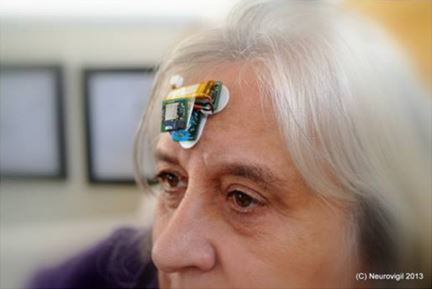Posts Tagged ‘senior-living’
Non-invasive neurotechnology reaches senior housing via ASHA-NeuroVigil innovative partnership
. Senior Living Sees Huge Potential in Resident Brain Data (Senior Housing News): “The American Senior Housing Association (ASHA) has announced a new partnership that aims to use neuroscience to determine whether senior living communities are benefiting their residents. As part of the initiative, La Jolla, California-based NeuroVigil will monitor
Read MoreAgenda, Educational Workshops @ 2012 SharpBrains Virtual Summit (June 7–14th, 2012)
Please take a look at the preliminary Summit Agenda featuring a stellar roster of confirmed Speakers and Moderators and including several in-depths workshops: How Nationwide Insurance rolled-out a Brain-based Corporate Wellness Initiative, with Kathleen Herath, Associate Vice President Health & Productivity, Nationwide Insurance. How to Connect Neuroscience and Special Education: A School-based Example, with Howard Eaton, CEO, Eaton Educational Group…
Read MoreMichael Merzenich on Brain Training, Assessments, and Personal Brain Trainers
Interview with Dr. Michael Merzenich, Emeritus Professor at UCSF, a leading pioneer in brain plasticity research. In the late 1980s, Dr. Merzenich was on the team that invented the cochlear implant. In 1996, he was the founding CEO of Scientific Learning Corporation (Nasdaq: SCIL), and in 2004 became co-founder and Chief Scientific Officer of Posit Science. He was elected to the National Academy of Sciences in 1999 and to the Institute of Medicine this year. He retired as Francis A. Sooy Professor and Co-Director of the Keck Center for Integrative Neuroscience at the University of California at San Francisco in 2007. You may have learned about his work in one of PBS TV specials, multiple media appearances, or neuroplasticity-related books.
Read MoreNavigating the brain fitness landscape: do’s and don’ts
“Choosing the right cognitive fitness product or program for senior living residents is harder than it sounds. But understanding residents’ needs, identifying your objectives and considering the total cost of ownership will help set you on the right path.” You can continue reading my first guest column at McKnight’s Long Term Care News here: Navigating the brain…
Read MoreBrain Fitness Programs For Seniors Housing, Healthcare and Insurance Providers: Evaluation Checklist
During the research phase before the publication of the special report Brain Fitness Centers in Seniors Housing — A Field in the Making, published by the American Seniors Housing Association (ASHA), we realized that there were equal amounts of interest and confusion among executives and professionals thinking about adding computer-based cognitive exercise products to their…
Read MoreCognitive Health News: August 2008
Here you have a roundup of interesting recent news on cognitive health topics and my commentary: 1) Playing Video Games Offers Learning Across Life Span, Say Studies 2) Mental Floss at Military Officer Magazine 3) Brain Training dominates ’08 Euro sales (CVG Online) 4) Dakim’s [m]Power Adopted by 150 Senior Living Communities … (Business Wire) 5)…
Read More

